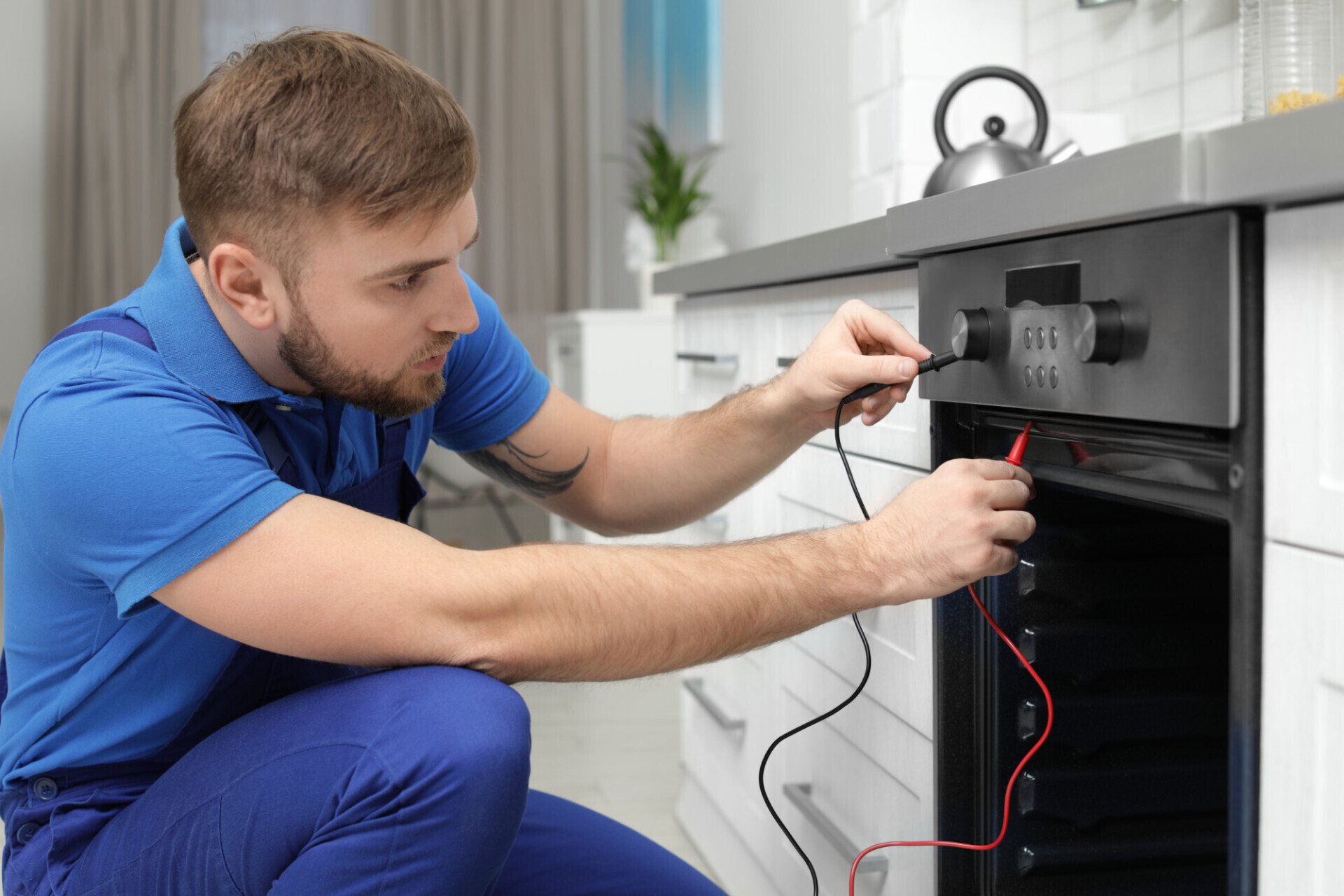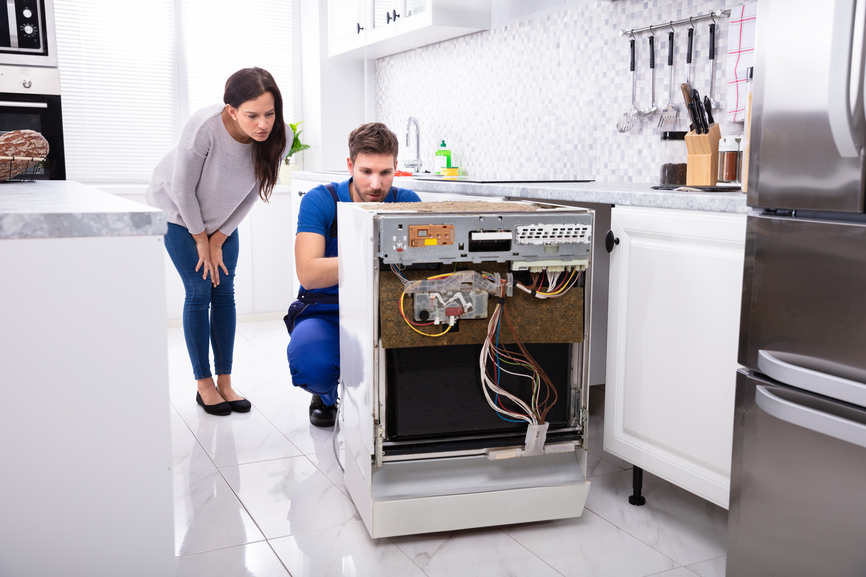The Ultimate Guide to Understanding Device Repair in your home
When your fridge quits cooling down or your stove rejects to warm, it can feel overwhelming. Comprehending home appliance fixing in your home can conserve you time and cash. You'll find out to identify signs and symptoms, make use of vital tools, and comply with an organized troubleshooting procedure. Prior to you begin, there are essential safety and security preventative measures you require to take right into account. What are the most typical problems, and how can you fix them? Allow's discover the fundamentals.
Typical Home Appliance Problems and Their Symptoms
When your appliances start breaking down, it's important to recognize the indicators beforehand. Neglecting them can cause larger issues and pricey fixings. If your refrigerator isn't cooling down appropriately, you might notice cozy areas or condensation forming. This might show a failing compressor or a blocked vent.Your dishwashing machine might reveal problems through dirty recipes or unusual noises during cycles. If you hear grinding or clanking, it's time to investigate.A washing equipment that will not rotate or drain can leave you with soaked laundry, suggesting a clogged drain or a malfunctioning pump.Lastly, if your oven's temperature level appears off or it takes permanently to pre-heat, you may be dealing with a defective thermostat. By remaining alert to these symptoms, you can deal with concerns prior to they rise right into major fixings.
Necessary Tools for Appliance Repair
When you're dealing with device fixings in the house, having the right devices is vital. Standard hand tools like screwdrivers and pliers will assist you dismantle and fix various appliances, while electric testing gadgets ensure you're working safely with circuitry. Allow's discuss what you need to obtain begun on your fixing journey.
Standard Hand Devices
Having the right tools is vital for effective appliance repair in the house. Beginning with a reputable screwdriver collection, including both flathead and Phillips types, as screws prevail in appliance assembly. Pliers are additionally crucial; they assist with gripping, twisting, and cutting cords or little components. A pair of needle-nose pliers can get to difficult situations easily. You'll require a good adjustable wrench for tightening up or loosening nuts and screws. An utility blade comes in handy for puncturing packaging or insulation. Finally, do not fail to remember a sturdy workbench or surface area to safely arrange your tools and components. With these basic hand tools, you'll be well-prepared to tackle most home appliance repair work that come your means.
Electric Screening Devices
Along with basic hand devices, electrical testing devices play a necessary function in device repair work. These devices assist you detect electrical concerns and guarantee devices operate securely. A multimeter is important; it gauges voltage, current, and resistance, permitting you to pinpoint issues promptly. A non-contact voltage tester is one more must-have, letting you spot real-time wires without making straight get in touch with, boosting your safety. Clamp meters are fantastic for measuring existing circulation in wires without disconnecting them, conserving you effort and time. Additionally, circuit testers can swiftly check if electrical outlets are functioning appropriately. By utilizing these devices, you'll enhance your troubleshooting process and enhance your fixing skills, making appliance maintenance a great deal much easier.
Step-by-Step Overview to Diagnosing Device Issues
When your device breaks down, it can be aggravating, however detecting the issue doesn't need to be frustrating. You'll learn to determine common issues and use effective fixing strategies. Let's stroll via the steps to get your appliance back in working order.
Common Appliance Problems

Troubleshooting Strategies Discussed

Fixing Significant Kitchen Area Devices: A Closer Look
Have you ever questioned just how to deal with common concerns with your kitchen devices? Repairing significant cooking area home appliances like refrigerators, ovens, and dishwashers can be easier than you assume. Begin by determining the problem-- whether it's a refrigerator not cooling or a stove that won't heat up. Commonly, a basic reset or inspecting the source of power can solve the issue.For fridges, clean the condenser coils and check the door seals. If your stove's not home heating, evaluate the burner and thermostat. Dish washers may just need a tidy filter or a reset to get them back at work. Constantly unplug the appliance before diving into fixings to guarantee your safety.Don' t fail to remember to consult the individual guidebook for particular fixing pointers associated appliance maintenance with your version. With a little bit of perseverance and the right devices, you can confidently deal with home appliance fixings and save money while doing so!

Repairing Laundry Devices: Tips and Techniques
When your laundry devices start breaking down, it can feel frustrating, but repairing them doesn't have to be an inconvenience. Beginning by checking the power supply. Validate the home appliance is connected in and the outlet is operating. Next, evaluate the door or lid button; a malfunctioning button can avoid the device from operating.For washing machines, if it's not rotating, look for out of balance tons. Redistributing the clothing might address the concern. If your dryer isn't heating, clean the dust filter and inspect the air vent for blockages.Listen for unusual sounds; they can show a trouble. If your home appliance is leaking, examine the hoses for cracks or loose links. Paper any kind of mistake codes displayed on electronic screens, as they can assist you in recognizing the issue. Finally, get in touch with the customer guidebook for specific troubleshooting suggestions associated with your design.
Security Preventative Measures to Take Throughout Fixes
Prior to you begin any appliance repair work, it's vital check over here to focus on safety and security to avoid accidents or injuries. Disconnect the device or transform off the circuit breaker to assure no power reaches it while you function. Usage protected tools to reduce the risk of electric shock. Wear safety goggles and gloves to protect yourself from sharp edges or debris (Washer dryer repair service Dependable Refrigeration).Make specific your work area is tidy and well-lit, so you can see what you're doing. Maintain kids and pets away from the location to stay clear of diversions and prospective threats. If you're managing gas home appliances, be additional mindful; check for leaks before proceeding.Take your time, and don't hurry through fixings. If you really feel unpredictable concerning any step, it's far better to pause and research than to guess. Complying with these preventative measures will assist create a much safer setting for your DIY home appliance fixing project
When to Call an Expert for Aid
How do you understand if it's time to call a professional for home appliance fixings? If you've attempted fundamental troubleshooting without success, it's a clear indicator. For instance, if your home appliance still will not begin or reveals uncommon noises after resetting it, don't think twice to look for specialist help.When you notice leaks, smoke, or burning smells, prioritize security and call a professional immediately. These problems can bring about more considerable damages or pose risks to your home.Also, if your appliance is under warranty, contacting an expert is commonly the very best course. They can guarantee that repairs won't invalidate your service warranty, conserving you cash in the long run.Finally, if you're uncertain or unpleasant with complex fixings, it's a good idea to leave it to the professionals. Remember, tackling complicated concerns without the ideal expertise can result in pricey errors. Trust a specialist when unsure!
Regularly Asked Concerns
How Can I Stop Home Appliance Problems in the Future?
To avoid device issues in the future, you should perform normal maintenance, look for deterioration, clean filters, and avoid overloading. Remaining positive will aid expand their lifespan and maintain them running smoothly.
What Are one of the most Typical DIY Device Repair Service Mistakes?
You might forget security preventative measures, avoid troubleshooting actions, or utilize incorrect tools when attempting do it yourself appliance fixings. Hurrying the process or overlooking producer guidelines can bring about even more significant concerns and pricey errors. Stay patient and notified!
How Do I Know if a Part Requirements Replacement?
You can tell if a component requires replacement by checking for unusual sounds, leakages, or inconsistent performance. If the device struggles to operate properly or reveals noticeable damage, it's likely time for a replacement.
Can I Utilize Generic Components for Device Repair Works?
Yes, you can utilize common components for appliance repair services, yet ascertain they work - Washer dryer repair service Dependable Refrigeration. Common components could conserve you cash, however they might affect performance or durability, so evaluate your choices meticulously prior to deciding
What Service Warranties Cover Device Services?
The majority of device warranties cover repair services for making issues, but they frequently exclude damage from abuse. Inspect your service warranty terms thoroughly, as some may require utilizing qualified service technicians and initial parts for protection look at this website to continue to be legitimate.